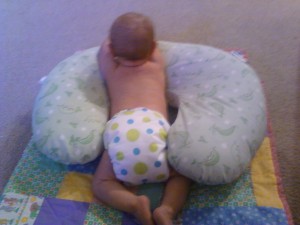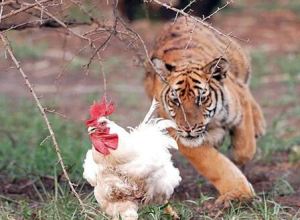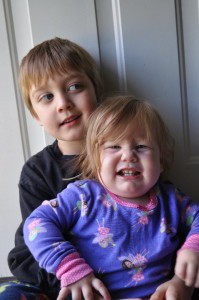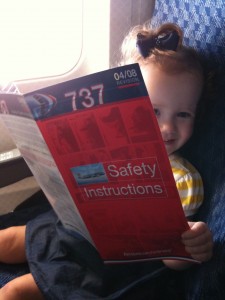Editor’s note: Happy Earth Day 2015! While this post was originally published on April 26, 2011, it’s a good reminder of how Attachment Parenting dovetails with teaching the next generation about caring for our communities and planet.
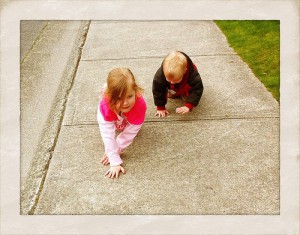 Today is Earth Day, which means that many of us are thinking about our environmental footprint. My 2-year-old Jacob is totally oblivious to all of the talk about saving the planet, but my 6-year-old Hannah is very interested.
Today is Earth Day, which means that many of us are thinking about our environmental footprint. My 2-year-old Jacob is totally oblivious to all of the talk about saving the planet, but my 6-year-old Hannah is very interested.
She’s picking up cues from school and the media, and every day she asks me how one or more of our activities impact the planet. I do my best to answer honestly, in a way that she’ll understand.
As I talk to Hannah about how our actions impact the planet, I’ve been reflecting on what my parenting style teaches my children about taking care of the earth. I think that if I generally communicate empathy and connectedness through the way that I respond to my children, they will feel that empathy and connectedness toward other people. And, by extension, toward the planet as a whole.
I see a definite connection with Attachment Parenting International‘s Eight Principles of Parenting. Here are a few examples from my home:
Feed with Love and Respect
As we introduce table foods, we’re creating a connection between our child and the world. Everything that we consume is provided in some way by the planet. And as we strive to make healthy eating choices, we’ll naturally be eating more whole foods. It’s a very logical step to talk to our children about where their food comes from, how it’s grown and how life on earth is sustained.
Respond with Sensitivity
We build a relationship of trust with our children by responding to them sensitively. It starts with a newborn’s first cries, and it continues as our children grow and we involve ourselves in their interests and strive to meet their needs. The relationship that is formed in the process creates a model for how children interact with the larger world around them.
If they learn to trust us, they will also learn to trust others — and develop empathy for them. They will understand that their actions have an impact, and they’ll want to make sure it’s helpful instead of harmful.
Strive for Balance in Your Personal and Family Life
One of the best ways that I’ve found to recharge my own batteries, as well as my kids’ batteries, is to get out into nature. Many parents that I talk to share the same experience. Getting outside, even if it just means spending 20 minutes in the backyard, can turn everyone’s mood around.
When my kids are outside, they explore the natural world. The wonder they experience is amazing, as they learn about plants and animals and insects and weather and seasons. They come to appreciate the earth, and they want to care for and support it.
By making healthy choices, taking the time to get outside, and helping our children learn empathy and feel connectedness, we’re setting the stage for them to make more sustainable choices. Without saying a word, our actions are communicating our values — and our kids pick up on them naturally. I think that’s a great thing.
How have your children learned to live more lightly on the planet? And do you think your parenting style plays a role in how they view the larger world? I’d love to hear your thoughts!

